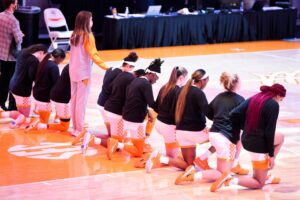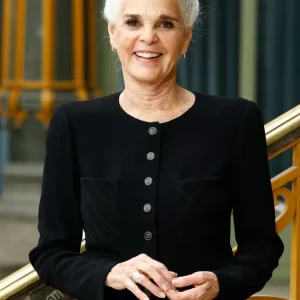WATCH VIDEO BELOW
The University of Texas (UT) has recently come under intense scrutiny for reportedly revoking scholarships from five athletes who knelt during the National Anthem to protest racial injustice.
Inspired by former NFL player Colin Kaepernick, these athletes sought to bring attention to systemic racism and police brutality. The university’s alleged action has ignited a heated debate on the delicate balance between free expression and adherence to institutional rules, placing UT at the center of a national conversation about the limits of protest in academic and athletic environments.

The act of kneeling during the National Anthem as a form of protest was popularized by Colin Kaepernick in 2016. His gesture was meant to draw attention to the persistent issues of racial injustice and police violence against Black Americans. While his actions received mixed reactions, they undeniably sparked a wider movement, encouraging athletes across various levels of sports to use their platforms for social advocacy. The athletes at UT, in choosing to kneel, aligned themselves with this broader movement, leveraging their visibility to make a powerful statement against racial inequalities.
The reported revocation of scholarships by UT has led to a polarized public response. On one side, supporters of the athletes argue that their right to free expression should be protected, especially when addressing such critical social issues. They contend that punitive actions against these students not only stifle free speech but also undermine the university’s commitment to fostering a diverse and inclusive environment.Conversely, critics of the athletes’ actions argue that kneeling during the National Anthem is disrespectful to the flag and those who have served the country. They support the university’s right to enforce its rules and maintain that scholarships are conditional on adherence to team and institutional policies. This perspective views the athletes’ protest as a violation of agreed-upon conduct, justifying the revocation of scholarships as a consequence.Universities are traditionally seen as bastions of free thought and expression, environments where diverse perspectives are encouraged and debated. UT has a history of supporting diverse viewpoints, making the reported action against the athletes particularly contentious. This incident challenges the university to navigate the complex terrain of upholding institutional policies while also honoring its commitment to freedom of expression.
WATCH VIDEO BELOW
The backlash against UT’s decision underscores the broader societal debate about the role of
academic institutions in political and social activism. Should universities act as neutral grounds where all forms of expression are protected, or do they have the right to impose restrictions to maintain order and respect for certain symbols and traditions? The controversy at UT raises important questions about the balance between institutional rules and individual freedoms. Institutions must establish guidelines to ensure cohesion and respect within their communities. However, when these rules appear to infringe upon fundamental rights, such as free expression, they risk alienating members of the community and provoking public outrage.UT’s response to this situation could set a significant precedent for other educational institutions facing similar issues. A decision to reinstate the scholarships might be seen as a commitment to supporting free expression, fostering a dialogue about racial injustice, and encouraging athletes to use their platforms responsibly. Conversely, upholding the revocation could reinforce the importance of adhering to institutional rules, potentially at the cost of perceived suppression of dissent.The University of Texas finds itself at a critical juncture, where its actions will have lasting implications for how institutions balance free expression with adherence to policies.
The outcome of this controversy will not only affect the athletes involved but also set a tone for
future responses to similar acts of protest within academic and athletic settings. Ultimately, the
university’s handling of this issue will reflect its values and priorities, either fostering an environment of open dialogue and activism or emphasizing the importance of institutional discipline and respect for traditional symbols.
WATCH VIDEO BELOW





